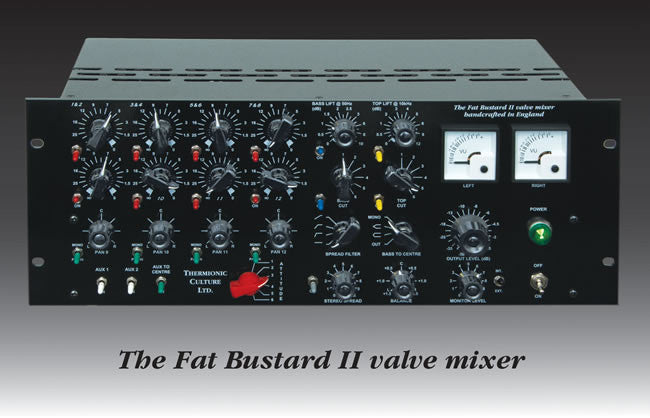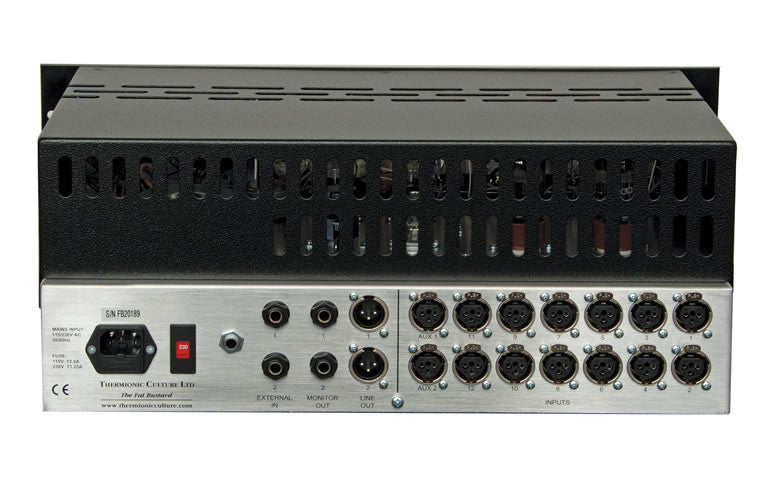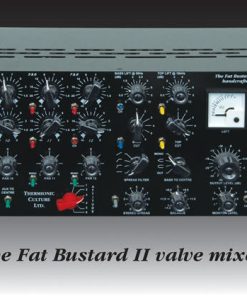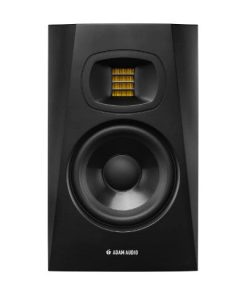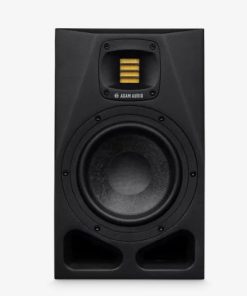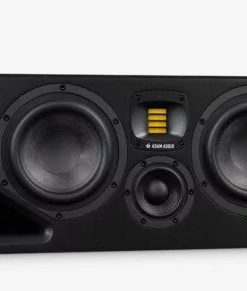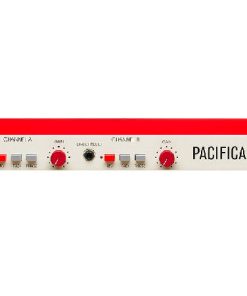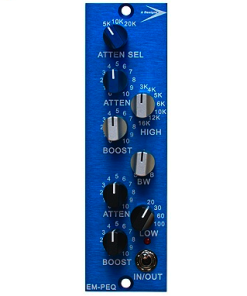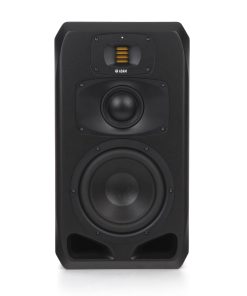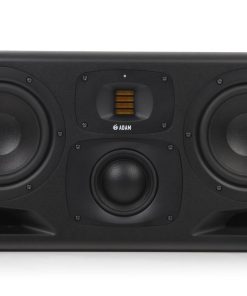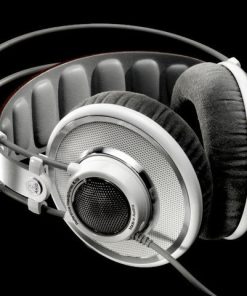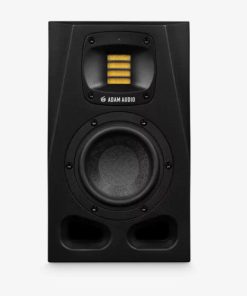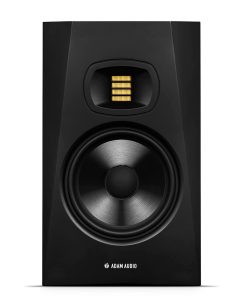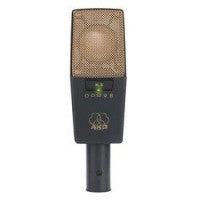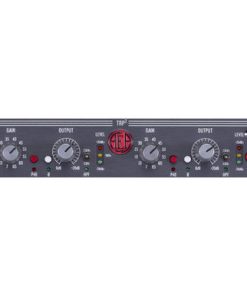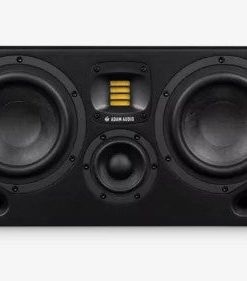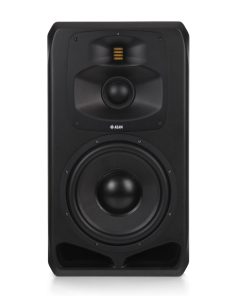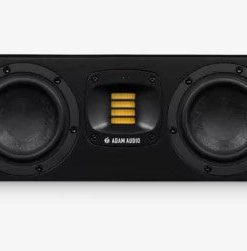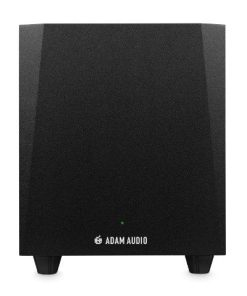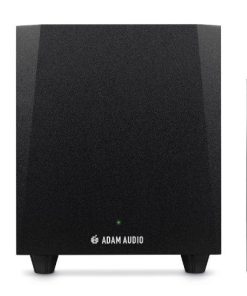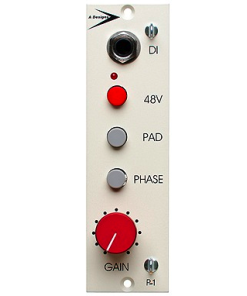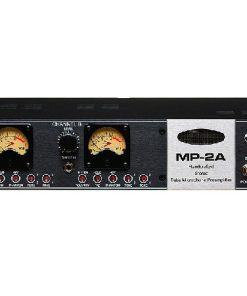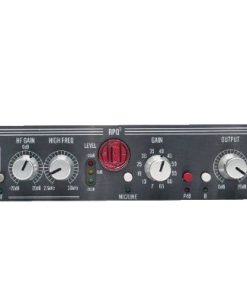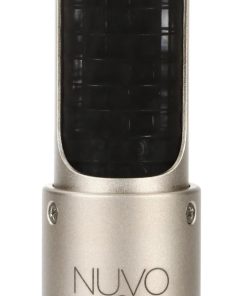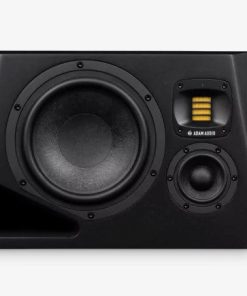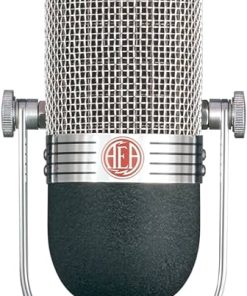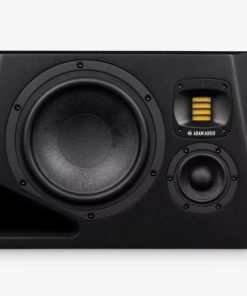Thermionic Culture Fat Bustard II Thermionic Culture
$ 5.499,00 $ 1.374,75
The Fat Bustard mk II is an all valve passive input summing mixer. It has 14 inputs with 4 stereo inputs, 4 mono pan-able inputs and 2 ‘Aux’ inputs with a pan switch. The Fat Bustard is unique in it’s exceptional sound quality and also the extra degree of control and processing it offers over the stereo mix output. The mk II version is now the standard production model and it has been upgraded to include a monitor output with level control.
Much of the attractive sound provided by the Fat Bustard is down to the choice of valves used. The summing is done by a pair of 5965 valves and the output stage uses a pair of 6SN7 valves. This combination provides a very large amount of headroom and a unique smooth sounding response. It’s also worth noting that the unit has “semi-floating” inputs and unbalanced outputs. This was a decision made at the design stage purely because the unit sounded better this way and performed excellently when connected for use in all situations.
The Fat Bustard employs our unique “varislope” curves for top and bass lift. As the control is turned up, the peak frequency of the curve becomes more extreme so as to add heavier bass/brilliant top ”“ without the hardness found in solid state eqs. The bass and top cuts provide a variety of options to tailor the sound ”“ too many to list here. They are of course independent of the lifts. All controls affect both stereo channels equally.
The ‘Attitude’ control is the next to control the sound of the mix.This switched control gradually increases the amount of harmonic distortion in the stereo summing stage. It is relatively subtle (at least in the lower positions) to provide just the right amount of 2nd harmonic content for a stereo mix. At high positions the mix can be quite aggressive.
The stereo spread control allows the stereo to be widened by a continuous amount over a selectable frequency range.
The ‘Spread filter’ control allows the frequency above which widening occurs to be selected from full band widening to only widening above 5KHz. Again, this control can be used to vary the tone of the stereo mix as well as the stereo width. Along with stereo widening at higher frequencies.
The ‘Bass to Centre’ control allows bass frequencies in the stereo mix to be summed to mono for 2 different low frequency ranges, plus there is a setting for all frequencies to mono.
A Stereo ‘balance’ control and rotary 31 position ELMA switch for ‘Output level’ give full control over output levels.
The ‘Monitor level’ control, int/ext switch and extra outputs provide a useful way to connect and control monitors to the Fat Bustard. Especially useful when the Fat Bustard is the only mixer being used. If this is not a requirement then the int/ext switch in conjunction with the monitor outputs can be used to provide an insert in/out switch.
Features
- All valve 14 channel passive summing mixer with many extras !
- Pan controls on 4 channels.
- Unique Varislope Top and Bass lifts plus filters.
- ‘Attitude’ control to add harmonics.
- Stereo width controls / Bass to centre and mono.
- Precision ELMA switch to control main level (fadeable).
- Monitor outputs with level control and switching.
- Hand wired with point to point wiring throughout.
- Exceptional sound quality- very low distortion except when required and massive ‘headroom’.
- Frequency response extends from below audio range to well above
Specs
Input impedance: 10k? (dependent upon channel and setting), unbalanced
Output impedance: 600? unbalanced
Monitor: 5k? unbalanced
Gain (ch. 1-8): 0 at Attitude 1, +11dB at max attitude
Maximum Output level: +25dBU
Distortion: (at Attitude 1) 0.015% +8dBm output
(at Attitude 3) 0.25%
(at max. attitude) ≥1% (dependent on how hard valves are driven)
Signal to noise: at least 100dB below MOL at Att.1 (IEC weighted)
Freq. response (±1dB): 16Hz to 40kHz (at Attitude 1)
Max bass lift +10dB @ 50Hz
Max top lift: +12db @ 12kHz
Phase shift (10kHz): (at Att.1), 7% (26°)
with EQ flat (at Att. 4), 10% (36°)
Crosstalk: 59dB @ 1kHz, 44dB @ 10kHz.
(average at Att. 1 & 2) Crosstalk will increase at high attitude settings and when stereo spread
and/or bass to centre controls are used.
| Configurations | 12 Channel Summing Mixer+EQ (Black), 12 Channel Summing Mixer+EQ TX Balanced outputs (BLK) |
|---|
Prompt Delivery and Professional Packaging
Our long-standing partnership with UPS FedEx DHL and other global carriers lets us offer a range of shipping services. Our warehouse staff is extremely skilled and will package your items according to our precise and exact specifications. Your goods will undergo an extensive inspection and be safely packaged prior to being sent out. Each day, we ship to thousands of customers in many countries. The fact that we are committed to becoming the biggest online retailer in the World is clear. These warehouses are in Europe in the same way as they are in USA.
Note: Orders that include more than one item are assigned a processing period depending on the item.
Before shipping, we will inspect thoroughly the items you have ordered. Most orders are shipped within 48 hours. Expected delivery time is between 3-7 days.
Returns
Stock is dynamic. It's not entirely managed by us since we are involved with multiple entities, including the factory and the storage. The actual stock can change at any moment. It is possible that your order may be out of stock once the order has been placed.
Our policy lasts for 30 days. We cannot exchange or refund your order if it has been 30 days from the date of purchase.
For your item to be returned it must be in its original packaging, unopened and in the condition you received it. The item must be in its original packaging.
Related products
Monitor
Monitor
Monitor
Recording Equipments
Headphones
Recording Equipments
Monitor Systems
500 Series
Monitor Systems
Accessories
Recording Equipments
Monitor Systems
Mic Preamp
Subwoofer
Monitor Systems
Microphones
Subwoofer
500 Series
Recording Equipments
Mic Preamp
Microphones
Recording Equipments
Microphones
Monitor
Microphones
